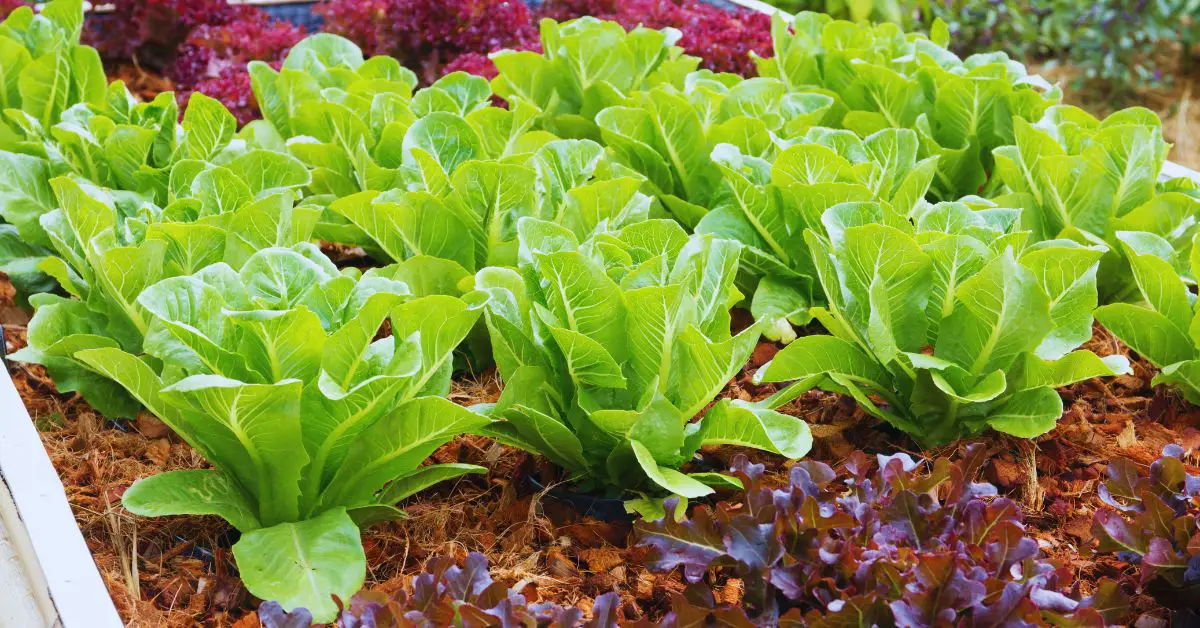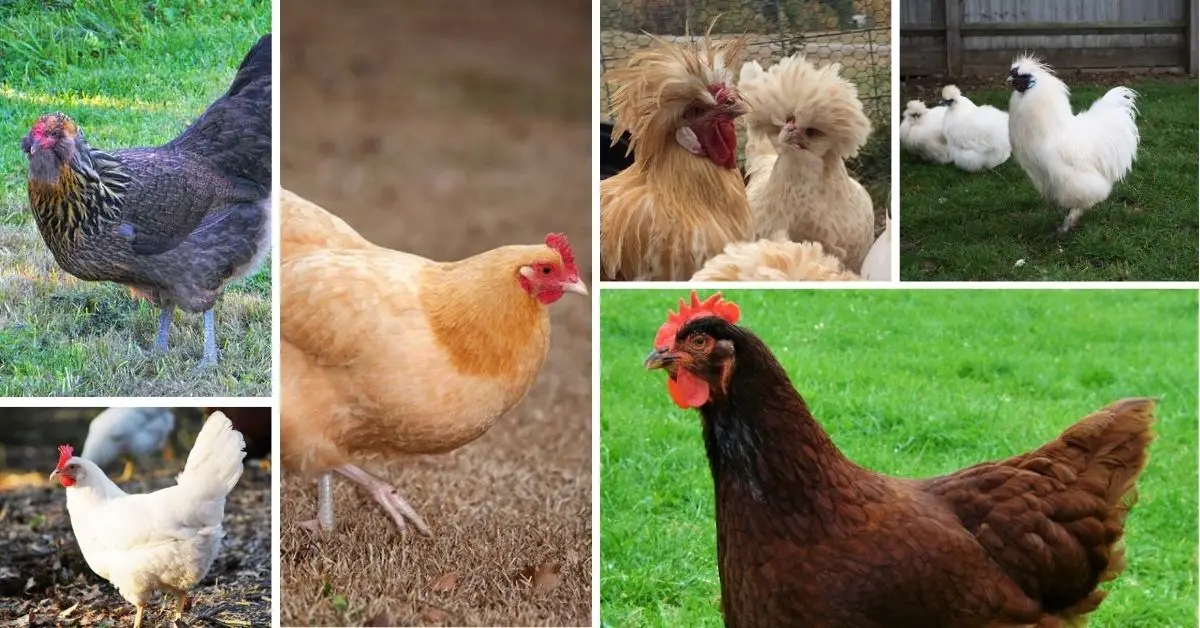Can Peppers Cross-Pollinate With Tomatoes?
Can peppers cross-pollinate with tomatoes? No, peppers and tomatoes cannot cross-pollinate. Peppers and tomatoes have a lot in common: both belong to the nightshade family, both are usually eaten in the same meal plans, and the vibrant colors of each vegetable can create some gorgeous dishes.
There is a lot of confusion about whether peppers can cross-pollinate with tomatoes. Some people believe that the two plants can’t mix, while others think that it’s possible for them to produce hybrid fruits. So, what’s the truth? Can peppers cross-pollinate with tomatoes or not?
In this blog post, we will explore the answer to that question and provide some information about why it matters.
What is Plant Pollination?
Plant pollination is an incredibly important process that is necessary for nearly 90% of flowering plant species in the world. Plants are incredibly reliant on pollinators such as bees, butterflies, and other insects to help them spread their pollen and facilitate reproduction, allowing them to grow new fruits and flowers.
As these pollinators get close to the flower, they pick up the sticky grains of pollen from its stigma and then transfer it to other flowers as they search for nectar and other nutrients.
Without this transfer of pollen, plants cannot reproduce and therefore, would not exist. Plant pollination is a vital part of our fragile ecosystem and without it, many species would become extinct.
It is both fascinating and miraculous that something so small can be so important for maintaining healthy biodiversity in our environment!
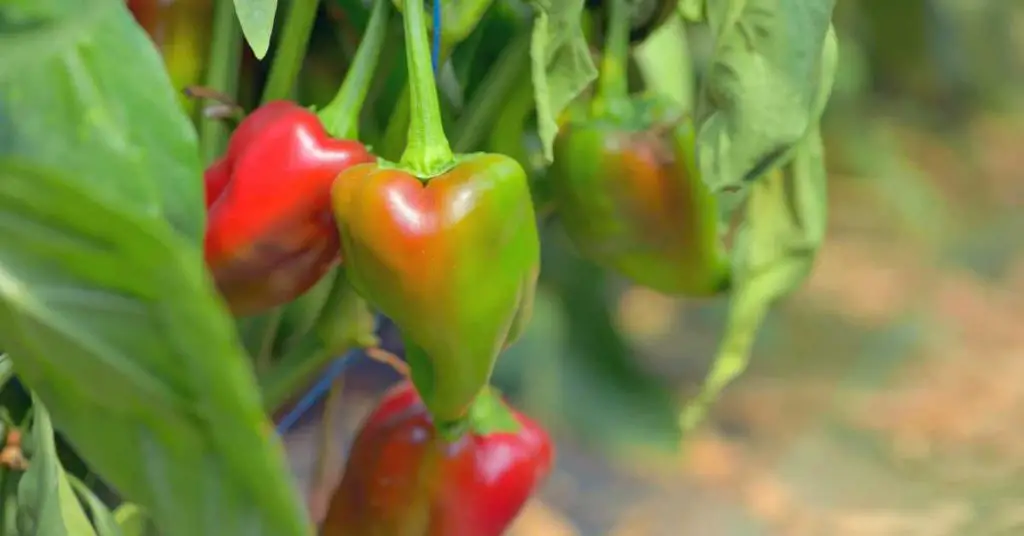
How Does Cross-Pollination Occur?
Cross-pollination is an important part of the reproductive cycle of flowering plants. This process involves the transfer of pollen from one plant to another, typically from male organs in one flower to female organs in another flower.
Cross-pollination can often be observed amongst bee and butterfly populations, as these creatures unwittingly carry pollen from flower to flower.
In a lot of cases, wind assists the process by physically blowing pollen around.
To ensure cross-pollination happens successfully, many flowers have evolved with nectar or bright colors that attract bees and other pollinators in need of sweet food sources or shelter.
Ultimately, it is up to Mother Nature and her unseen forces to properly facilitate cross-pollination for most plants’ chance at offspring!
What Can You Cross-Pollinate with Peppers?
Peppers are self-pollinating which means that they do not require pollen from another plant to produce fruit. Each of the flowers on a pepper plant contains male and female components so just a gust of wind can pollinate the flowers.
In this case, most peppers can cross-pollinate with other peppers even if it’s a sweet pepper crossing with a hot pepper.
The way this works is if pollen gets transported from one plant to another plant either by manual pollination by the gardener or by insect – the pollinated flower will form a pepper.
This pepper would carry the genetic information from the mother plant and the father plant.
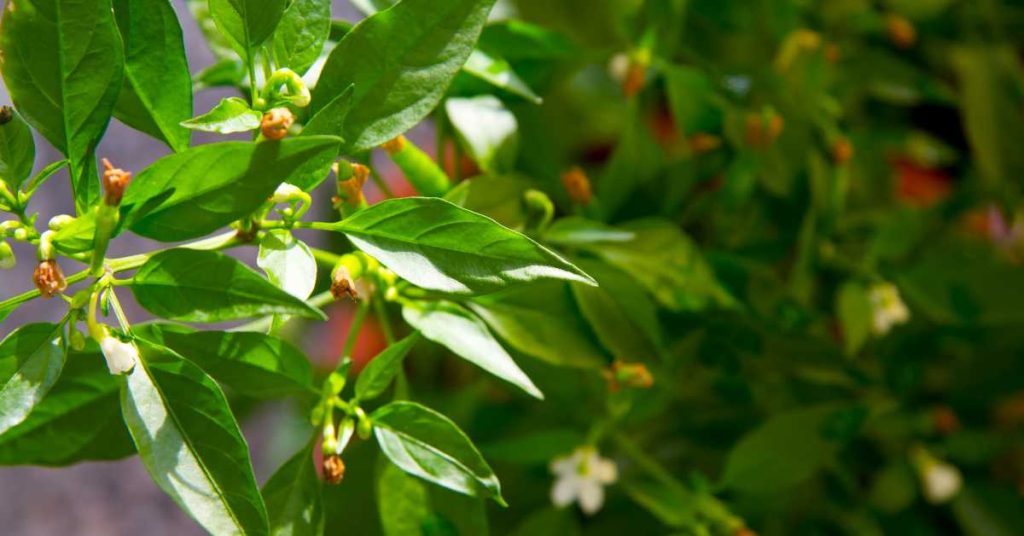
What Fruits and Vegetables Will Cross-Pollinate with Each Other?
The only fruits and vegetables that will cross-pollinate with each other are compatible plants. This just means that plants are in the same family. For example, cucurbits which are cucumbers, squash, melons, watermelons, pumpkins, and many others.
These can easily cross-pollinate because they are in the same plant family. This is why you can often see a weird squash or melon that doesn’t look like anything you planted.
The same plant family rule doesn’t apply to every plant family though as members of the Solanaceae family which is peppers, eggplant, and tomatoes cannot cross-pollinate with each other but rather just other peppers or tomatoes.
Peppers can cross with other peppers. Eggplant can cross with another eggplant, and tomatoes will cross with other tomatoes. This can be a little tricky if you are growing multiple varieties of these plants and want the seed to stay true.
Can You Prevent Cross-Pollination?
Yes, and no. Cross-pollination of plants is a natural process and can be difficult to completely prevent.
If you are looking to save pure seed from specific plants though, it is possible to isolate them in order to reduce the risk of cross-pollination. This requires some strategic garden planning, such as planting your desired crops far enough away from other compatible plants or bagging individual flowers to prevent insect pollination.
Another popular approach is to remove the male flower parts on the plants you don’t want to cross-pollinate, which prevents any pollen from being produced and consequently reduces your chances of accidental cross-pollination.
Cross-pollination is a fascinating part of our natural world and it’s essential for healthy plant populations and the preservation of biodiversity.
While it can be challenging to prevent cross-pollination, understanding the process and taking steps to isolate plants can help you save pure seed that is true to type.
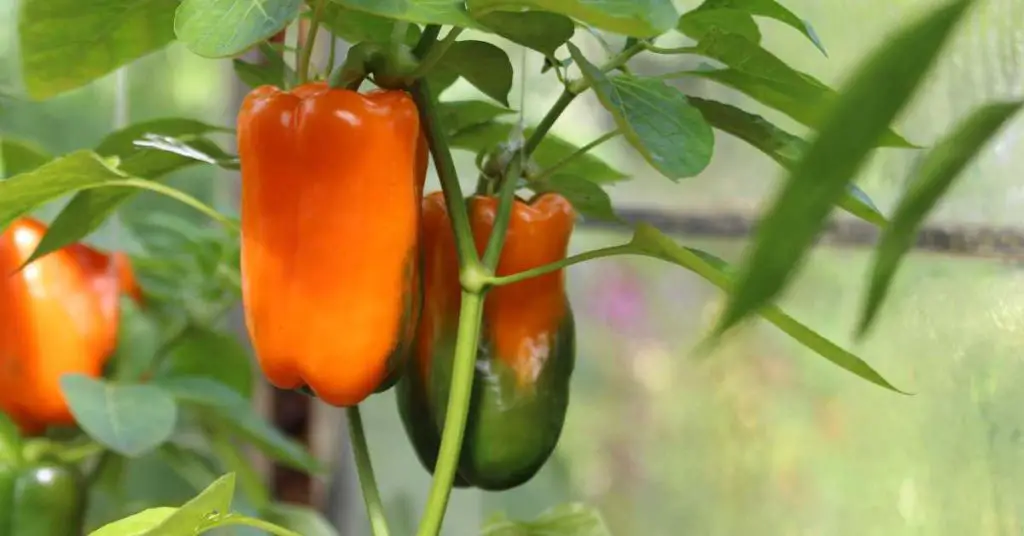
Can You Plant Tomatoes and Peppers Close Together?
Yes, you can plant tomatoes and peppers close together in the garden. Peppers and tomatoes make great companions when planted together. You can maximize your garden space by growing tomatoes up a trellis in a garden bed and growing other plants like peppers or basil in the foreground of the bed.
I like to string my tomatoes up the back of the bed (if there is a backside to the bed) or up the north side of the bed to prevent them from shading other plants out.
In the front area of the bed, I like to plant peppers, basil, and marigolds to fill out the bed. This helps to maximize the space in the bed as well as add some benefits of companion planting to help deter potential pests.
What Can Peppers Cross Pollinate With?
Peppers can cross-pollinate with other pepper varieties, meaning that two different types of peppers can create a hybrid variety. Depending on the two parent varieties, this hybrid will possess both parents’ characteristics, such as heat and color.
Cross-pollination is very common in the garden and can be done naturally or with manual intervention.
FAQs
Here are some common questions about peppers and tomatoes:
Do You Need 2 Pepper Plants to Pollinate?
Peppers are self-fertile and do not require another pepper plant to set fruit. This is because peppers possess both male and female components in their flowers on each individual plant, which allows the pepper to self-pollinate.
Each flower contains both the male (stamens) and female (pistils) parts necessary for fertilization. Therefore, you only need one pepper plant for pollination.
Can You Cross-Pollinate Different Types of Tomatoes?
Yes, different types of tomatoes can cross-pollinate with each other. This is because all tomatoes belong to the same species and family, meaning their flowers are compatible and able to produce viable seeds.
When saving seeds from tomatoes, it is important to be aware that tomato varieties may cross-pollinate with each other.
Can Different Types of Peppers Cross-Pollinate?
Yes, different types of peppers can cross-pollinate. Since all peppers belong to the same species and family, their flowers are compatible and able to produce viable seeds. The peppers that are produced the first year when the cross-pollination happens will still be true to the type that you planted. The crossing will only affect the peppers the next season if you choose to grow those seeds.
Can Cross-Pollination Make Peppers Hotter?
Cross-pollination is an important part of maintaining plant diversity, and it can be especially beneficial when it comes to peppers. When pepper plants cross-pollinate with one another, the resulting hybrid seed will display different traits from both parents in the following year.
The most notable trait that can be affected by cross-pollination is the heat level of the pepper. The hybrid seed will inherit traits from both parent plants, which could result in increased heat levels or variance in the shape and size of the peppers. Cross-pollination is a great way to experiment with different varieties of peppers and create something new.
If you cross peppers and grow out the seed for several seasons you can eventually stabilize the seed to create a new variety of pepper altogether.
This process does take up to 7-10 years of growing out a strain to get the seed to grow true to the variety that you are trying to create but it can be well worth it.

Does Cross-Pollination Affect Pepper Taste?
Crossing pepper varieties will not affect the taste of the current year’s fruit. This is because the process of cross-pollination takes place between the flowers of different varieties before any fruit has been produced. It is only after seeds have been harvested from a hybrid variety and grown out in the following seasons that you will start to see different traits come to light.
The first season that hybrid seed is grown is the F1 year. You can see differences in the type, size, shape, taste, or even heat level of the fruit. You can also see differences in the size, shape, and prolificness of the plant
The new hybrid pepper plants can also have an increased resistance to certain diseases, pests, and environmental conditions, which can make them stronger plants overall. However, it is important to remember that if you do choose to cross-pollinate different varieties of peppers, you will need to monitor the plants carefully and practice year-manual intervention. This is because some of the traits from the different parent plants may not show up until several seasons after planting the hybrid seed.
Cross-pollination can be a useful tool for growing peppers with unique characteristics, but it is important to understand that it can take several seasons to fully realize the effects of this process. If you are looking to experiment with different varieties of peppers, cross-pollination is a great way to do it, but be sure to keep track and monitor the plants over time in order to get the best results.
Final Thoughts
Though they have a lot in common, peppers and tomatoes cannot cross-pollinate with each other. If you’re planning on growing both vegetables in your garden, you don’t have to worry about them accidentally crossing and creating some strange hybrid fruit.
You can focus on picking the perfect spot in your yard for each plant and enjoy the colorful bounty that these two incredible types of plants will provide come harvest time.


